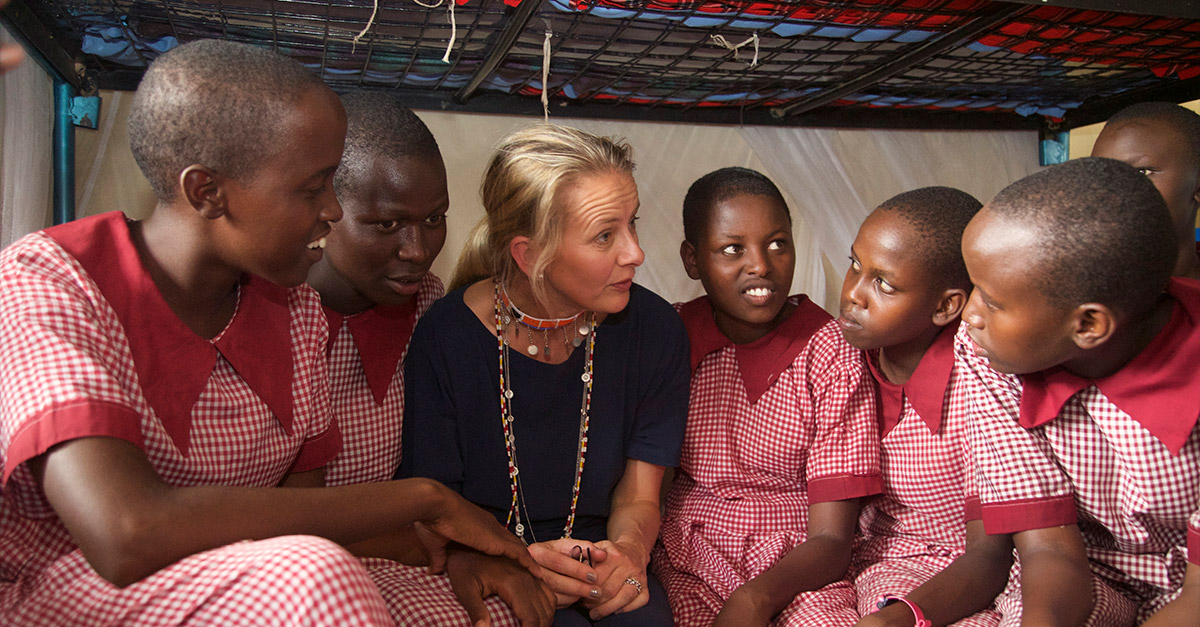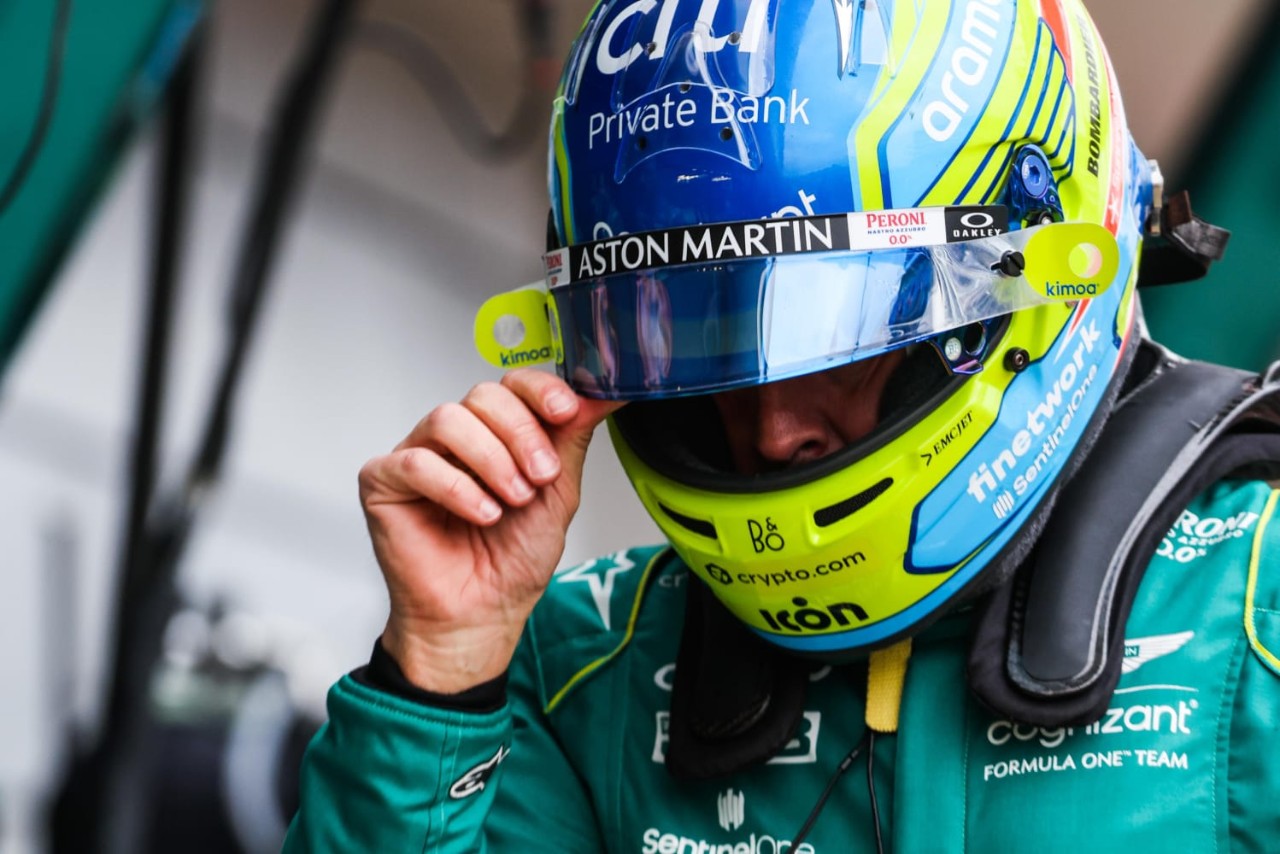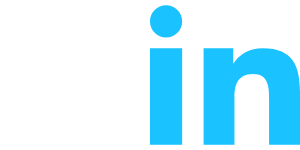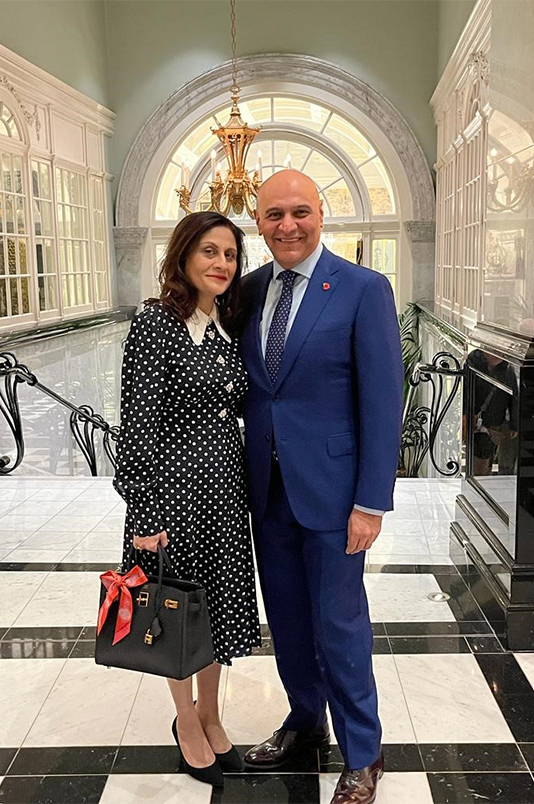
Nik Kotecha was feeling frustrated. With his impeccable set of academic credentials, the young scientist had landed a coveted role in drug research at a leading pharmaceuticals firm. But the longer he spent in this big corporate environment, the more he wondered whether it was for him.
“I had lots of exciting ideas while I was there,” recalls Nik. “I wanted to develop new methods of medicinal chemistry and molecular testing, but I felt it was hard to get heard. Large companies can have a lot of layers. I sensed that I wasn’t heading in the right direction.”
So, Nik decided to pursue a venture of his own in his spare time. He and his wife Moni had noticed a lack of quality medicines in developing countries, even for people able to afford them. What if they exported UK-manufactured products to some of these emerging economies? They floated their idea to friends in Africa and Asia, who thought it was promising.
“It had always puzzled me why high-quality medicines weren’t getting to these places,” recalls Nik. “Back in the early 1990s, regulatory standards were less stringent across many developing countries, with many counterfeit treatments in circulation.”
“I found it troubling that many of the world’s most vulnerable people were often getting sicker from medicines which should have been helping them,” he continues. “We knew the UK was well regarded for its high-quality standards, business practices and regulation. And we were convinced there would be appetite for licensed products in export markets.”
Nik and Moni set to work. The garage at home was converted into the first headquarters of Morningside Pharmaceuticals, as they named their new venture. A carpet was laid, the walls were painted magnolia and a single phone line and fax machine were hooked up.
To seek out potential customers, Nik and Moni would call UK embassies in British Commonwealth nations around the world and ask the staff to fax them the details of local medicine importers. The early response was encouraging. Soon, Morningside Pharmaceuticals was busily dispatching medicines sourced in the UK to customers across the globe.
“We weren’t really thinking big at that stage,” Nik admits. “As we saw it, we had come up with a business model that might give us a slightly better lifestyle, a dinner out now and again. For me, it also satisfied an urge to ‘do business’. My father had been a successful import-export merchant back in Uganda and I’ve proudly inherited those instincts.”
Despite the promise of the niche they had discovered, Nik and Moni faced obstacles. Doing international trade – never an easy proposition – was even harder in those days, especially for a tiny start-up. Expensive international phone calls all too often came to nothing. And the couple were both still working full-time jobs on top of their new venture.

Swapping that security to focus on growing our business was daunting, but it was the best move we could have made.
As Morningside’s full potential began to dawn on Nik and Moni, they faced a major decision. To take the business to the next level, they would have to devote themselves to it entirely. This would naturally mean giving up their salaries, pensions and other corporate comforts. “Swapping that security to focus on growing our business was daunting, but it was the best move we could have made,” says Nik.
To build the business further, Nik began to travel extensively. In many cases, he realized, closing a deal required looking the customer in the eye and shaking hands. “I loved the whole experience, but it was also hard work,” Nik remembers. “We had little cash, so I’d book the cheapest flights and hotels and then go knocking on the doors of importers in international markets.”
Morningside’s precocious skill in exporting to developing countries did not go unnoticed.
Just four years after its birth in a garage, the company was invited to send representatives to accompany a British trade delegation to New York. The trip included meetings with some of the largest divisions of international aid agencies.
“We explained Morningside’s mission of delivering high-quality medicines at affordable prices and our focus on developing countries,” says Nik. “The response was really positive, and we ended up getting a contract to supply to a large aid organization. That was the big break for us.”
Supplying international aid agencies was much more than just a business opportunity to Nik and Moni. Both had arrived in the UK as child refugees two decades earlier – see Nik Kotecha: My life – and had benefited greatly from the kindness and dedication of NGOs and international aid workers.
The early success of Morningside resulted from the shrewd identification of a gap in the market. With the rise of the World Wide Web in the late 1990s, however, Nik and Moni came to another key realization: their thriving business now faced disruption and eventual oblivion.
“We’d been going for almost a decade and we were serving about eighty countries,” observes Nik. “But we were acutely aware that we were just intermediaries. And with the advance of the internet, we saw that our customers and suppliers would easily be able to come together, leaving no role for us. So, we knew it was time to evolve.”
Morningside initially shifted toward licensing technology from other companies, which it would then use to register, market and distribute generic medicines in the UK. The first such product was a drug for type 2 diabetes, a fast-growing condition globally. But while the licensing model worked well, it also had limitations. The licenses acquired only came with UK distribution rights, whereas Nik’s horizons were far wider.
The natural progression for Morningside was to become a pharmaceuticals producer itself. Through major investment in its infrastructure and talent, the company began to formulate, develop and manufacture its own generic medicines.
“Thirty years after we started out, things could hardly have been more different,” observes Nik. “We had exported to more than 120 countries with over 300 EU- and UK-licensed medicines, formulating our own generic treatments and shipping twice daily to all pharmacies and hospitals in the UK.
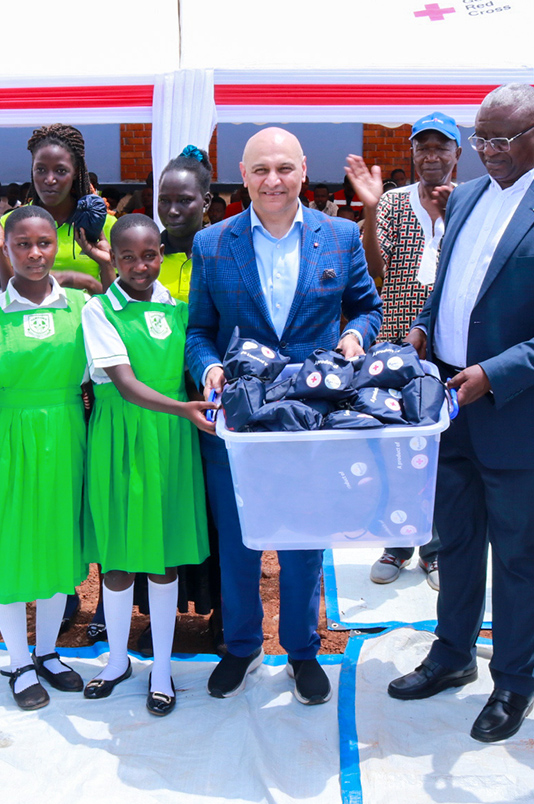
As a scientist, I know that evidence to show that whatever we are doing is making a difference is hugely important.
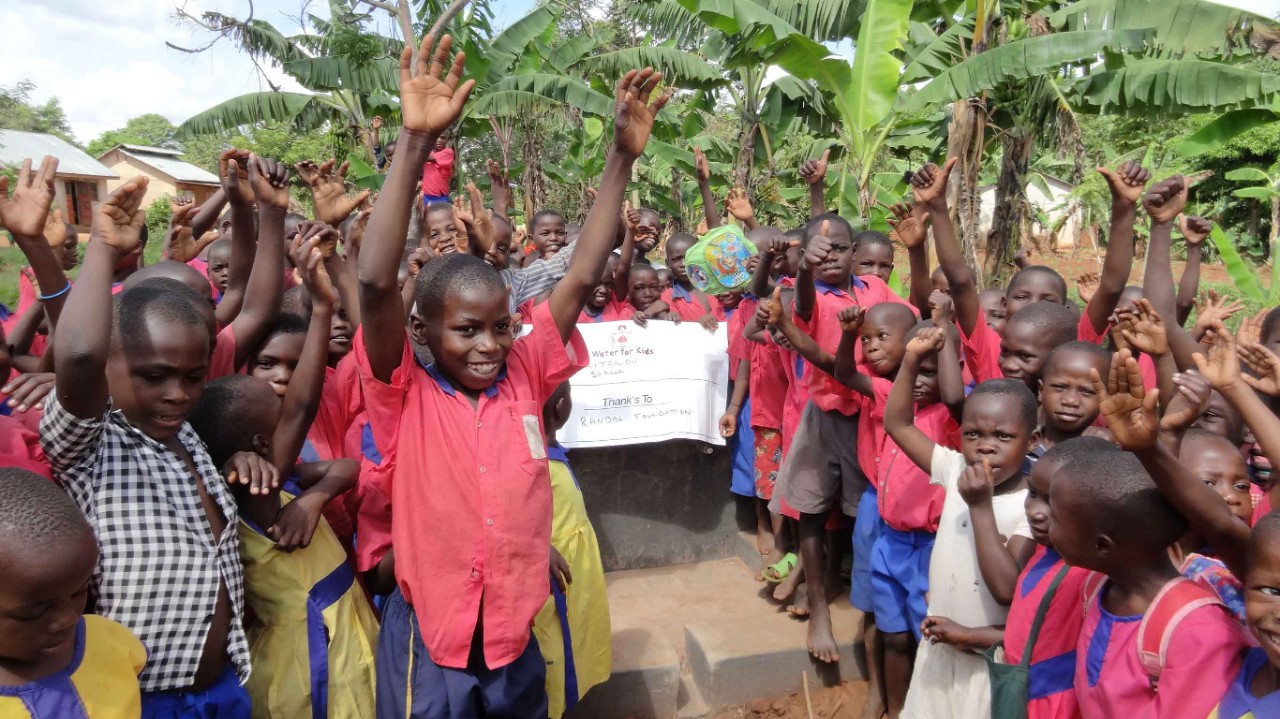
In 2022, Nik and Moni took another difficult step. After more than three decades, they agreed to sell the family business that they had lovingly grown out of nothing. “We have two amazing children who are as passionate about helping others as we are. But rather than joining Morningside to do this, they’ve chosen to pursue careers as medical doctors.”
“The company stayed true to our original mission throughout,” reflects Nik. “To this day, Morningside remains one of the leading UK suppliers to the largest international aid agencies. Saving lives through access to high-quality, affordable medicine is something that means the world to us.”
Sometime before the sale, Nik and Moni had already begun to map out the next phase of their mission. Alongside widely diversifying their business interests beyond pharmaceuticals, Nik and Moni created the Randal Charitable Foundation in 2017. Its vision is one of directly saving and significantly improving lives, for people and communities worldwide.
“Having traveled so much to developing countries, I’ve seen first-hand many of the challenges being faced, but also the incredible work that charities, social enterprises and NGOs do,” says Nik. “As well as supporting causes in the developing world, though, we made a conscious decision to help people in the UK. Moni and I arrived here as child refugees. The UK took us in and gave us an education. We love this country and want to give back.”
The foundation makes grants and collaborates with aligned partner organizations to achieve impact. Its areas of focus include improving physical and mental health, alleviating poverty and social disadvantage, tackling addiction, and enabling education for the most vulnerable. When selecting which organizations to support, the foundation uses a rigorous evidence-based approach.
“Whether it’s a large charity or a small community cause, our criteria are the same,” says Nik. “We ask that they can clearly demonstrate that their initiative is impactful and saves or significantly improves lives. Having made a grant, we then remain in touch with them, monitoring the progress toward the outcomes set out in their original application.”
“As a scientist, I know that evidence to show that whatever we are doing is making a difference is hugely important,” he continues. “Sometimes, the changes we enable can be difficult to measure, especially when the ultimate objective is saving lives. But we follow a structured approach to fully gauge our impact – because it matters.”
In addition to grant making, the foundation seeks to influence government policy through lobbying for its chosen causes. This stems from Nik’s realization that transformative change typically requires shifts in policy at the highest level. Again, the Randal Foundation approach is data-driven and evidence-based.
“Securing policy change means spotting opportunities and getting like-minded people around a table,” says Nik. “But you need to present policymakers with evidence to drive that change. So, we partner with think tanks who conduct the necessary research, and we then put forward a case based on hard data.”
My father had been a successful import-export merchant back in Uganda and I’ve proudly inherited those instincts.
This approach has already borne fruit. A foundation-backed project helped persuade the UK government to devote a further £780 million toward rebuilding the drug treatment system over a ten-year period. It has also collaborated with a think tank over prisoner rehabilitation in the UK. Data analysis had uncovered a striking pattern: vulnerable prisoners – those with histories of addiction, mental health issues and homelessness – who were released on Fridays frequently found themselves back behind bars the following week.
“Those paroled on Friday afternoons can struggle to get the immediate support they need,” says Nik. “Because everything is shutting down for the weekend, they can’t start arranging accommodation or work. All too often, they end up breaching their bail conditions or even committing a new crime over the weekend. Our goal is to see that they get support throughout their rehabilitation – beginning once they are released from prison.”
Evidence from the research provided the basis for a lobbying campaign. In 2022, the UK government announced it planned to change the law to restrict Friday releases of vulnerable prisoners. The foundation is now targeting policy changes to help ex-prisoners secure employment. Not only could this further reduce reoffending rates but also ease the UK’s acute labor shortage.
The Randal Foundation’s activities are equally focused on improving lives globally. Amid a critical shortage of vital supplies during the COVID pandemic, it supplied medical-grade oxygen generation equipment to hospitals in Africa and India. Its latest initiative is a recently opened factory in Uganda in collaboration with the Red Cross, the organization that enabled Nik and his family to flee tyranny half a century earlier.
“The new factory produces sanitary pads for women throughout the region,” Nik explains. “It provides steady earnings for the women who work there and their families, while the products will be either given away or sold at affordable prices. A lack of sanitary pads keeps many women housebound in Africa, particularly adolescents, often causing them to drop out of education. So, our project is vital to helping tens of thousands of girls have a far better chance of reaching their full potential and making their way in the world as more equal citizens.”
Whereas Nik and Moni had modest ambitions when they established Morningside, their aspirations for the Randal Foundation are on an altogether different scale. “We want to save or significantly improve the lives of one million people globally,” says Nik. “The foundation will be one of our main areas of focus for the next chapter of our lives.”
Collaboration is at the heart of the couple’s vision. “To make the biggest possible impact, you need to scale your efforts,” says Nik. “I’m a real believer in building partnerships to make things happen – something I’ve done throughout my career. And now, that means charities, businesses and like-minded families working together to change lives. I want to meet and collaborate with many others who share our passion for helping people.
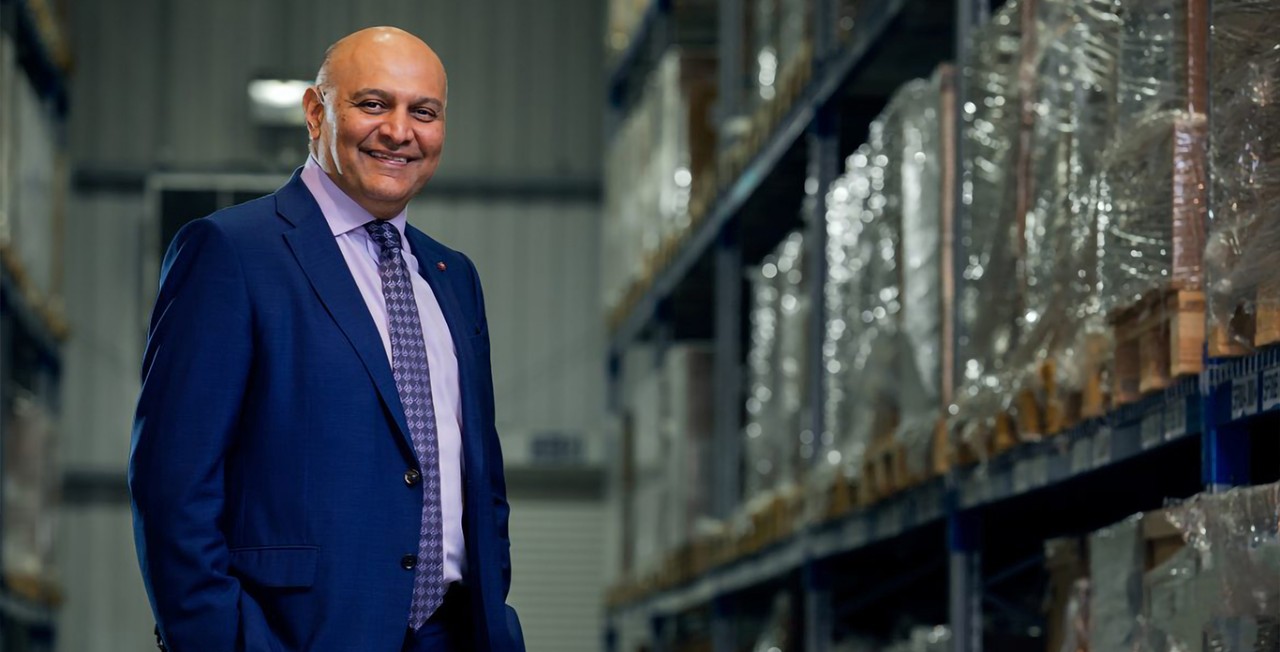
Dr Nik Kotecha: My life
“I was born in Uganda, where I spent my first six years. My family had made a decent life for themselves there and I was in a good school. But in 1972, the dictator Idi Amin decreed that all Ugandans of Asian origin must leave within ninety days. My mother had a British passport, so she, my two younger siblings and I tearfully boarded a plane for the UK with all that we could carry in a couple of suitcases. My father, however, had Ugandan nationality so was effectively stateless following Amin’s order and unable to come with us.
Arriving in the UK was a shock, especially with the cold and the rain. Our mum didn’t speak English and neither did we. We initially sheltered in a refugee center, south of London. Conditions were cramped, and we were worried about whether we would see our dad ever again. Just before the dictator’s deadline, Dad escaped to Austria with the help of the Red Cross. Six months later, another charity helped reunite us in the UK. We found a permanent home in Leicester, in the midlands region of England.
Both my mum and dad took jobs in factories and we started attending school. Education was paramount in our household. Our parents explained they couldn’t give us much in the material sense but constantly encouraged us to better our lot through learning. My siblings and I all followed their advice. I was drawn to the sciences at school and discovered I was very good at chemistry, for which I had an inspirational teacher.
In those days, the local authorities awarded grants to promising students of modest means to go to university. I was fortunate to get funding to attend Newcastle, followed by a scholarship to do my PhD at Imperial College London, rounded off with further doctoral studies at Cambridge University. And so it was that I became a medicinal chemist, seeking out new molecules and new drugs. After so many years of studying, it almost seemed like I was heading for a career in academia. But I’d just met my wife-to-be Moni and I thought a corporate career would make it easier for me to raise a family.
Both Moni and I have always had a sense of purpose. I think this comes partly from our family backgrounds. My parents were a huge inspiration to me. My mother is selfless, always helping others. We didn’t have much financially but she would always ensure that others were fed first, supported or had somewhere to stay the night. My father worked long hours to provide as much as he could for us all. Moni’s family – also refugees from Uganda – had the same ethics and our families have always been very close.
The Randal Charitable Foundation that we’ve created is very much a family set-up. Our children, who are both medically trained doctors, have the same instincts to give back as we do. When they were much younger, they used to come with us to India, visiting villages to help bring school supplies and pencils to schoolchildren who couldn’t afford stationery. At a young age, our daughter told us she wanted to be a doctor because she wanted to help people. Our hope is that our foundation can help to inspire others and that our children will keep fulfilling its mission.
My work has taken me to many countries over the last thirty years and my business interests today remain global. I’ve visited much of Africa, the Far East, Latin America and all parts of Europe. This has brought me into contact with so many different cultures, ethnicities, traditions and ways of life. For all the differences I’ve encountered, I have also seen that we are all human and have beautiful hearts. We all care about our families and communities and we want to help others. For me, that’s the essence of what it is to be a global citizen.”

